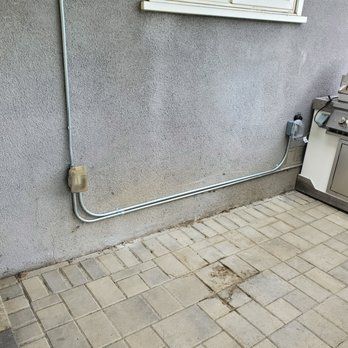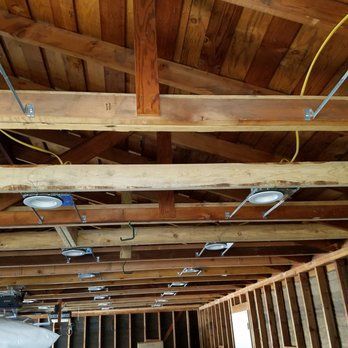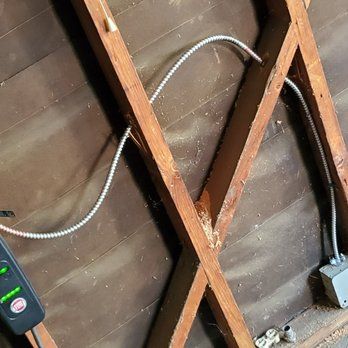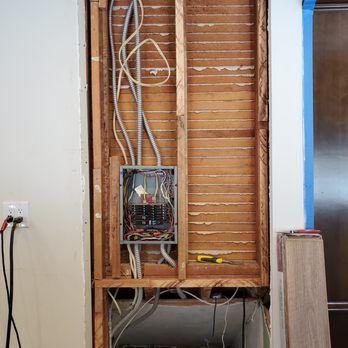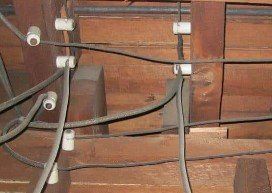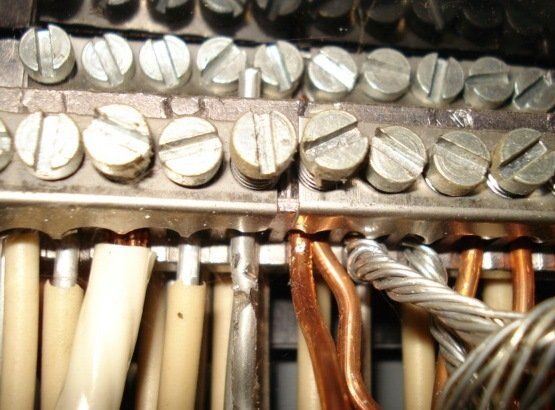Electrical Wiring
ENSURE YOUR HOME WIRING IS GROUNDED
Grounding of your home electrical wiring system adds a safety factor for your family. A grounded system routes excess electricity into the ground, even if there’s an electrical malfunction. This prevents electrical shocks to people and prevents damage to home electronics.
Protections Provided by Grounding
Electricity travels the path of least resistance. If an appliance like a toaster breaks, electricity can flow on the metal outside of the toaster. Touching it could result in a serious shock, causing injury or even death. But if the electrical system is grounded and the toaster is plugged in with three prongs, the electricity won’t flow to the outside of the toaster. Instead it will flow through the third prong back into the wires and harmlessly into the ground.
Protect Your Electronics
Grounding protects not only people but also sensitive electronics. Without grounding, electrical charges build up in wiring and create slight but continuous damage to delicate electronics. This damage can shorten the lives of computers, entertainment systems, phones, refrigerators, ovens, microwaves, and other appliances.
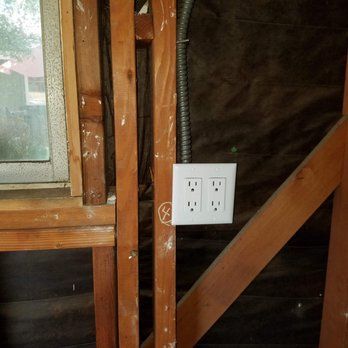
Surge Protection Requires a Grounded System
You are probably aware that it is desirable to provide surge protection for electronic devices. Surges are sudden increases in power. These can occur when the power comes back on after an outage or anytime that the power from your electrical utility fluctuates. Surges can also occur when appliances in your home turn on and off.
You may have provided a surge protector for your computer. Should there be a sudden increase or “surge” in power in your wiring system, the surge protector is supposed to suppress it so it won’t run through your computer. However, surge protectors function only if your electrical wiring system is grounded. In other words, even with a surge protector, if your wiring is not grounded, the surge could run through your computer.
PROBLEMS ELECTRICIANS PICK UP DURING ROUTINE INSPECTIONS & MAINTENANCE
If you are considering buying a home or renovating your existing home, you will need the property inspected by a licensed and qualified electrician. Some electrical problems that they pick up during these inspections could include:
Loose connection burns in the panel – a loose electrical connection generates heat that causes the wire insulation to burn off. This is very dangerous and an enormous fire hazard.
When testing the voltage, they could detect power surges or transients. These are high voltage disruptions that can cause permanent damage to connected electronic appliances or devices.
Incorrect or outdated wiring – this needs to be rectified immediately as faulty or incorrect wiring is a fire hazard.
The entire panel needs updating or replacing – with more and more appliances being added to the electrical source, older homes may need to have the panel replaced. The panel may also need to be replaced or resized if you are doing any expansions to the property.
Knob and Tube Wiring Replacement
Knob and tube wiring is one of the earliest systems used to bring electricity into homes and buildings. It was installed in homes from 1880 to 1935. The system involved wires being wrapped around ceramic knobs and run through ceramic tubes. You can look in your attic to see if you have any of these exposed knobs if you are unsure. You can also call us to have an electrician do a quick inspection to determine what kind of wiring your older home has. If you have knob and tube wiring, it is a good idea to have the home rewired to meet today’s electrical safety standards. It has been proven that the old-fashioned knob and tube system is unsafe. If you ever want to sell your home, you may discover banks will be unwilling to give a loan on a home that has this type of wiring. You may also discover you cannot get a homeowner’s insurance policy. Knob and tube wiring replacement the home will give you more electricity that will allow you to keep up with today’s electrical world.
Consumer Product Safety Commission: “Serious Potential Fire Hazard”
The U.S. Consumer Products Safety Commission estimates that the likelihood of a fire is 40 to 50 times greater in a house wired with aluminum than in a house wired with copper. A spokesman for the federal Consumer Product Safety Commission, Scott Wolfson, says about aluminum wiring: “This is an area we feel very strongly about. Aluminum wiring in a house presents a very serious potential fire hazard. We feel that there are a significant number of homeowners who have aluminum wiring and who haven’t yet taken steps to make their homes safe.”
About Aluminum Wiring Replacement
From the mid-1960’s into the early 1970’s, the electrical systems in many homes used aluminum wires instead of copper. The federal Consumer Product Safety Commission estimates that 2,000,000 homes were built or renovated using aluminum wiring. Since the mid-1970’s, only copper wiring has been used because aluminum was found to pose a fire hazard. Avoid a possible fire hazard in your home by getting your aluminum wiring replacement serviced by The Electric Connection. Call (818) 446-0888 and talk to our in house electrician, Kim, about replacing the aluminum wiring in your home today.


